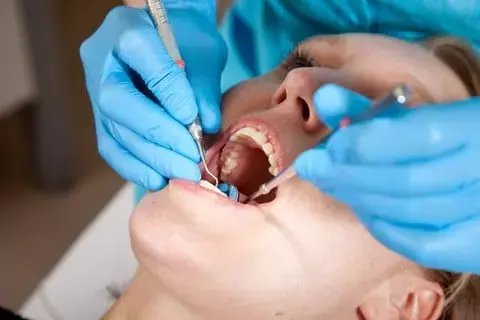- Home
- Medical news & Guidelines
- Anesthesiology
- Cardiology and CTVS
- Critical Care
- Dentistry
- Dermatology
- Diabetes and Endocrinology
- ENT
- Gastroenterology
- Medicine
- Nephrology
- Neurology
- Obstretics-Gynaecology
- Oncology
- Ophthalmology
- Orthopaedics
- Pediatrics-Neonatology
- Psychiatry
- Pulmonology
- Radiology
- Surgery
- Urology
- Laboratory Medicine
- Diet
- Nursing
- Paramedical
- Physiotherapy
- Health news
- Fact Check
- Bone Health Fact Check
- Brain Health Fact Check
- Cancer Related Fact Check
- Child Care Fact Check
- Dental and oral health fact check
- Diabetes and metabolic health fact check
- Diet and Nutrition Fact Check
- Eye and ENT Care Fact Check
- Fitness fact check
- Gut health fact check
- Heart health fact check
- Kidney health fact check
- Medical education fact check
- Men's health fact check
- Respiratory fact check
- Skin and hair care fact check
- Vaccine and Immunization fact check
- Women's health fact check
- AYUSH
- State News
- Andaman and Nicobar Islands
- Andhra Pradesh
- Arunachal Pradesh
- Assam
- Bihar
- Chandigarh
- Chattisgarh
- Dadra and Nagar Haveli
- Daman and Diu
- Delhi
- Goa
- Gujarat
- Haryana
- Himachal Pradesh
- Jammu & Kashmir
- Jharkhand
- Karnataka
- Kerala
- Ladakh
- Lakshadweep
- Madhya Pradesh
- Maharashtra
- Manipur
- Meghalaya
- Mizoram
- Nagaland
- Odisha
- Puducherry
- Punjab
- Rajasthan
- Sikkim
- Tamil Nadu
- Telangana
- Tripura
- Uttar Pradesh
- Uttrakhand
- West Bengal
- Medical Education
- Industry
Rice husk nanosilica can induce formation of dentin hydroxyapatite and has antimicrobial effects

Caries is a dynamic dental hard tissue disease caused by interaction between specific oral bacteria and diet that damages the enamel or dentin surface, resulting in demineralization. In a new study researchers embarked to determine the effect of rice husk nanosilica on the increase in dentin hydroxyapatite and its antimicrobial effects against Streptococcus mutans and a possible treatment option for caries.
Rice husk nanosilica can induce the formation of dentin hydroxyapatite and has antimicrobial effects suggests a recent study published in the European Journal of Dentistry
Rice husk nanosilica has a porous, amorphous structure with a silica (SiO2) surface. Silica interacts with calcium ions to form hydroxyapatite and can induce the formation of reactive oxygen species (ROS), which harm microorganisms. This research determines the effect of rice husk nanosilica on the increase in dentin hydroxyapatite and its antimicrobial effects against Streptococcus mutans. Researchers divided 27 dental cavity samples into three groups (n = 9). Group 1: normal dentin, Group 2: demineralized dentin, Group 3: demineralized dentin treated with rice husk nanosilica. The samples were analyzed using X-ray diffraction (XRD) to evaluate the formation of dentin hydroxyapatite. To analyze the viability of S. mutans after exposure to 2% nanosilica rice husk, we conducted an antimicrobial MTT assay. The Kruskal–Wallis test evaluates the formation of dentin hydroxyapatite, and the t-test evaluates the viability of S. mutans.
Researchers concluded that Rice husk nanosilica can remineralize dentin by forming hydroxyapatite and has an antimicrobial effect with a marked decrease in viability of S. mutans
Iffi Aprillia , Sylva Dinie Alinda , Endang Suprastiwi. Efficacy of Rice Husk Nanosilica as A Caries Treatment (Dentin Hydroxyapatite and Antimicrobial Analysis).
CC BY 4.0 · Eur J Dent 2022; 16(04): 875-879
DOI: 10.1055/s-0041-1741373
Dr. Shravani Dali has completed her BDS from Pravara institute of medical sciences, loni. Following which she extensively worked in the healthcare sector for 2+ years. She has been actively involved in writing blogs in field of health and wellness. Currently she is pursuing her Masters of public health-health administration from Tata institute of social sciences. She can be contacted at editorial@medicaldialogues.in.
Dr Kamal Kant Kohli-MBBS, DTCD- a chest specialist with more than 30 years of practice and a flair for writing clinical articles, Dr Kamal Kant Kohli joined Medical Dialogues as a Chief Editor of Medical News. Besides writing articles, as an editor, he proofreads and verifies all the medical content published on Medical Dialogues including those coming from journals, studies,medical conferences,guidelines etc. Email: drkohli@medicaldialogues.in. Contact no. 011-43720751


